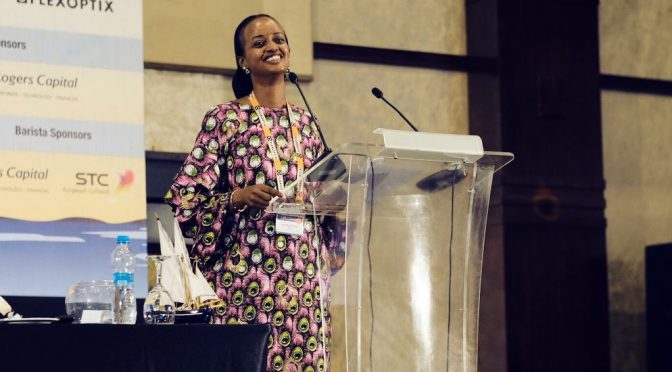AfPIF Day Three: A Record Number of Women
It’s been a record-breaking year: 97 women attended AfPIF 2019, the highest ever, showing the fruits of diversity efforts from organizers and sponsors.
In the last three years, there have been fellowships targeting women in engineering, supported by organizations like Workonline, Google, LINX, and Akamai. There’s also been a working lunch, where participants discuss the best way AfPIF can be more inclusive to women.
As the curtains fell on the tenth edition of AfPIF, it was clear that the future is looking bright, with 367 men and women attending, representing 59 countries: 202 from Africa, 36 from Europe, 16 from America, and 13 from Asia.
The first panel of the day was dedicated to looking back at the challenges in the last ten years, identifying the opportunities going forward, and what we all must do in order to guarantee business growth and better connectivity for the region.
One of the key points was that the traditional telco model is changing, and companies will have to adapt in order to stay relevant. Seacom, for instance is exploring other business opportunities as the demand for traditional infrastructure falls and local content grows, leading to formation of ISPs that can survive largely without the need for IP transit.
“The notion that everyone wants transit to London doesn’t hold anymore. In South Africa, it is now possible for a local ISP to survive on 90% of local traffic, meaning they may not need IP transit, compared to other parts of the continent. That makes sales harder in South Africa, but growth opportunities are there in countries that are yet to open up,” said Mark Tinka, Head of IP Engineering at Seacom.
The panel made it very clear that the ecosystem is made up of complex relationships and will need all parties working together in order to grow. The growth in content has a direct correlation with the growth in data center space. While in other parts of the world its easier to predict the uptake, it is much harder to predict the growth in Africa.
For Teraco, initially, the goal was to have more space, explain to people the benefits of co-location, and have more connections. However, virtualization means one can do more with smaller spaces and the challenge now is continued innovation and scaling, as more companies explore having 10G ports, which was unheard of 10 years ago.
Ten years ago, Akamai’s challenge was how to enter more markets, build relationships and navigate complex regulatory issues in different countries. Now, the CDN is in major service providers in 26 countries and is using the lessons learned to grow its footprint to more countries.
For Google, the challenge still remains access. How do we make connectivity more accessible to more people? Smartphones have become cheaper, but the bandwidth needs to get more affordable for more people to use it. The cost of last mile equipment needs to get more affordable for networks to provide more affordable connectivity, whether through the radio network or fiber.
The issue of wayleaves, whether by national, local, or aviation authorities remains a major issue for many organizations. Whether it’s on cost or the time it takes to get the approval, it was clear that more dialogue is needed in order to make the process smoother.
Network security has become more paramount, as more people get online, including criminals. The importance of security was discussed at length, showing how the networks are susceptible to phishing, DDoS and human error.
The afternoon session focused on Routing security which has become more paramount, due to the high number of routing security incidents. In the recent past, a number of routing security incidents have resulted in the global outage of large content providers such as Cloudflare. One common routing security incident is known as route prefix hijacking. This occurs when a network broadcasts or announces Internet Protocol (IP) address routing information, accidentally or otherwise, that belongs to a different network. As a result, Internet users trying to connect to the original network that owns the IP addresses are redirected to a different (wrong) network.
Speakers on the security sessions demonstrated various techniques and tools that ISPs and IXPs can implement to reduce the effect of route hijacking incidents. Networks were asked to implement RPKI which increases the integrity of the global routing address information system. RPKI enables networks to validate the source of routing information received from other networks. The validation ensures that invalid sources are flagged appropriately and are not propagated across to other networks globally. For instance, Cloudflare demonstrated how a recent route hijack incident, which affected many networks globally from accessing their services, did not affect those networks that had implemented RPKI.
Networks were also encouraged implement and join the Mutually Agreed Norms on Routing Security (MANRS) actions to mitigate against the recurrence of similar routing security incidents in the future.
AfPIF 2020 will be held in Kigali, Rwanda.
